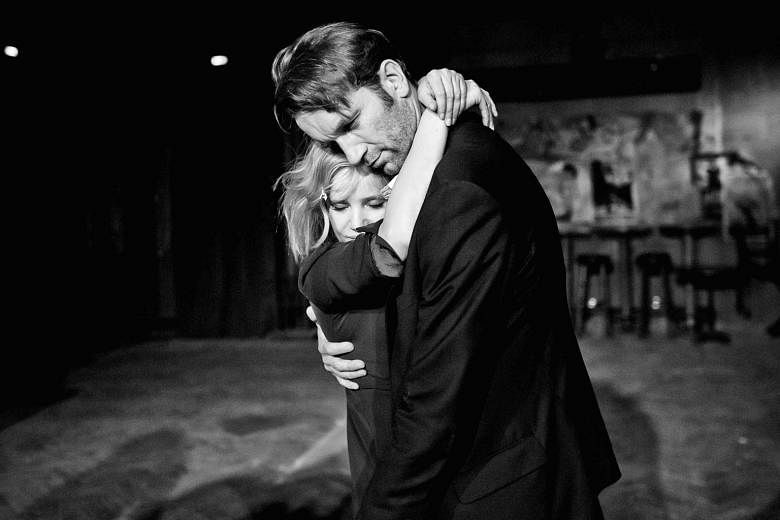A starkly beautiful black-and-white period drama, Cold War has "artsy" written all over it.
It has been a favourite among critics, scooping Best Director honours at last year's Cannes Film Festival and is now up for three Oscars: Best Foreign Language Film, Best Director and Best Cinematography.
But Polish director and co-writer Pawel Pawlikowski thinks his story will appeal to a broader constituency than the arthouse crowd: diehard romantics.
Set in Poland, France, Germany and Yugoslavia from the 1940s to 1960s, against the backdrop of the Cold War, the film tracks the turbulent love affair between a young singer and a musical director who meet in the aftermath of World War II.
The Polish-language film will screen at Golden Village Paya Lebar tomorrow and Saturday.
Speaking at a screening in Los Angeles in December, Pawlikowski describes his protagonists as "two misguided characters who don't really fit together socially or temperamentally, and history plays its tricks on them".
"But in the end, they realise they have nobody but each other and it's kind of sublime," he says. "I feel uplifted by such endings too."
The film-maker - who won the Best Foreign Film Academy Award with drama Ida (2013) - wanted this movie to recall a bygone era where romance did not play out on smartphone and computer screens.
"This is part of the reason I went back to Poland to make it and also went back in time," says the 61-year-old, who has lived and worked in Britain for most his life.
"It's out of this urge to tell these stories which kind of transcend time and where emotional life is not ruled by the digital world, but happens for real and has huge consequences."
Moviegoers respond to his old-fashioned storytelling and film-making, he believes.
This was also true with Ida, his film about a young woman discovering a dark family secret from the years of the German occupation - the first Best Foreign Film Oscar winner from Poland.
"The reaction of audiences to Ida and to this shows there is a real craving for that. And not just with the story, but also the way you make films - the idea of hand-making films in a non-industrial way also seems to have a good impact on audiences.
"Because it's not a film where you can feel the division of labour - 'this is the script, photography, this is the music'. Everything was brought together in a very amateurish, old-fashioned way."
The movie is also a deeply personal one inspired by the director's own parents, whom he describes as "the most interesting dramatic characters I've ever come across".
They were "both strong, wonderful people but, as a couple, a never-ending disaster", says Pawlikowski, who has two children by his late first wife and is now married to Polish model Malgosia Bela, 41.
As a cinematic interpretation of his parents' relationship, Cold War is "pretty close in the mechanics - the way they meet and (the fact) he's 10 years older and seems like an authority, and she's this hot-headed young woman", he says of lovers Zula (Joanna Kulig) and Wiktor (Tomasz Kot).
"And they read and misread each other, they separate, they reunite abroad and discover they're not quite what they remembered or imagined about each other.
"All that happened to my parents - splitting up and getting back together, marrying other people, leaving the country, dumping other people. Much more messy than here," he says with a laugh.
This all played out over 40 years for his mother and father, rather than the compressed 15-year timeline in the film.
It, ultimately, worked out for his parents, though.
"At the end of it all, they were too tired to fight and were both quite ill.
"And they were the most touching, loving couple you can imagine. They were holding hands and the whole world was kind of passing them by and they didn't care. They had nobody, but each other.
"So it was a great love story at the end, but it didn't look like it at first."
• Cold War screens at Golden Village Paya Lebar tomorrow and Saturday.

